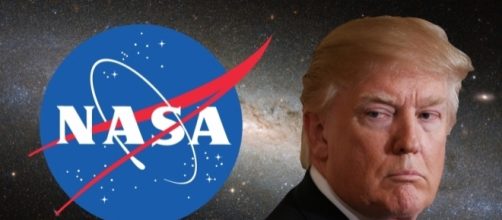Donald Trump’s federal budget proposals released on March 17, 2017, will envisage deep cuts in budget allocations for NASA. The cuts will affect two space programs coming under the ambit of NASA, and both the programs will have implications for Climate Science. Trump’s view that human activities do not trigger the climate change is widely regarded as the reason for the axing of these two projects. Spending cuts are also on the anvil for doles given by NASA like scholarships and aid given to young and upcoming scientists.
Climate research funds axed
President Trump has asked NASA to focus on space research rather than other activities like climate change research. The PACE mission which is an acronym for Plankton, Aerosol, Cloud, Ocean Ecosystem and envisages monitoring the health of the planet’s oceans has been axed, and so is the DSCOVR, short for Deep Space Climate Observatory meant to detect solar storm activities. The budget also asks for eliminating funding for earth viewing apparatus.
Europa mission curtailed
Funds for the proposed Europa moon landing have been cut. Europa is an icy moon and is said to have an atmosphere composed of Oxygen and an ocean of liquid water under its surface. NASA wanted to send a mission to Jupiter which will make some flybys across Europa and finally place a Lander on the moon.
Trump’s new budget proposals cut the landed and allow the flyby’s only.
The Federal blueprint released last week said, "To preserve the balance of NASA’s science portfolio and maintain flexibility to conduct missions that were determined to be more relevant to the science community, the Budget provides no funding for a multibillion-dollar mission to land on Europa."
Trump proposes NASA budget cut, slashes Earth science and education funding https://t.co/vqyj2wy2C8 pic.twitter.com/MP5zj7OA3n
— Huntsville Alabama (@huntsvilleRR) March 16, 2017
Asteroid Redirect Mission axed
Another project which faced the ax was the Asteroid Redirect Mission or the ARM which studied the feasibility of redirecting an asteroid which will prove helpful in deflecting any earth colliding asteroid. The project was carefully considered by the Congress before it was approved. The mission will significantly increase knowledge and help in the manned mission to Mars.

